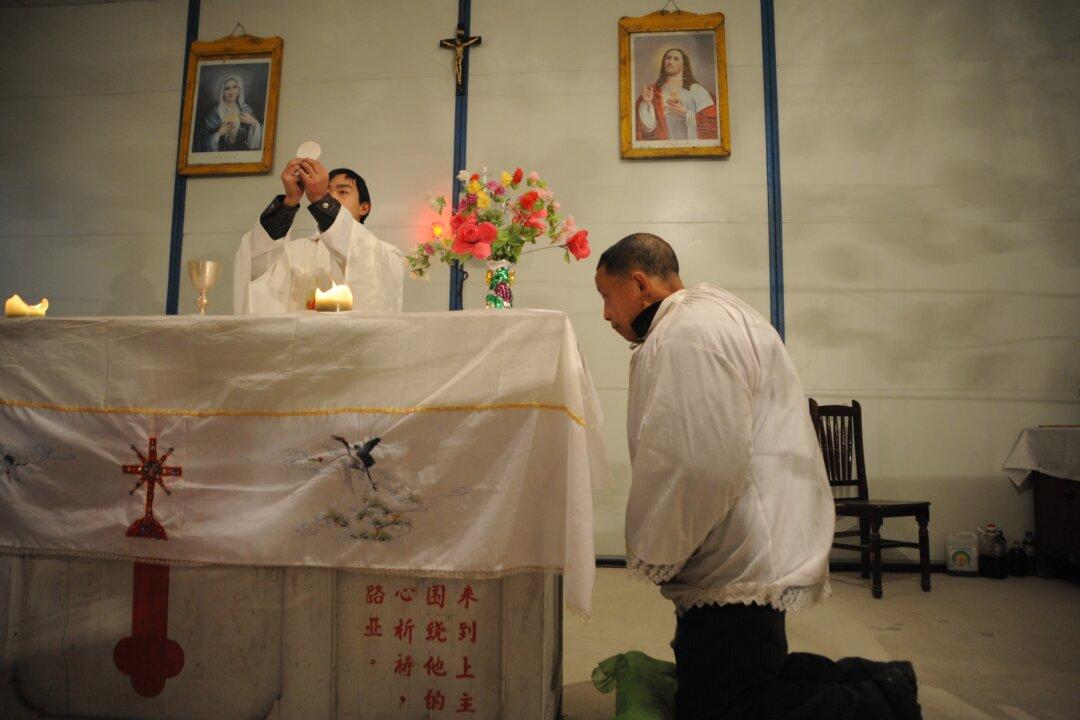Local authorities in Guangzhou City recently issued a new regulation to encourage citizens to report any “illegal religious activities” they witness. An informant may receive up to 10,000 yuan ($1,490) for helping police in the capital of Guangdong Province track down “illegal religious groups or members.”
The regulation, called “Incentives to Motivate the Masses to Report on Illegal Religious Activities,” was issued and published online on March 20 by the Bureau of Ethnic and Religious Affairs, an office within the Guangzhou provincial government.
The announcement explained that those who provide clues and assistance to “relevant government departments” for tracking down “illegal religious groups or members” will receive a reward of 1,000 to 3,000 yuan ($149 to $447). If the informant helps to track down “illegal religious group or members” living overseas, he or she will receive a higher reward, of 3,000 to 5,000 yuan ($447 to $745). And if key members of an overseas “illegal religious group” are located, the informant would receive a reward of 5,000 to 10,000 yuan ($745 to $1,490).
Guangzhou authorities characterized “illegal activities” as establishing places of religious worship without government approval; holding religious activities in non-religious institutions or locations; accepting religious donations; organizing Chinese citizens to go abroad for religious activities such as seminars, meetings, or worship without approval; or providing religious education without approval.
In a March 30 interview with Voice of America, Bob Fu, a Chinese-American pastor, said that based on the regulation’s wording, he believed it was specifically targeted at underground Christians.
In February last year, the Chinese regime amended its “Regulations on Religious Affairs,” giving low-level officials the authority to impose harsher penalties on religious believers. Independent Chinese media have since reported an intensification of religious suppression, particularly toward members of Christian house churches.
For instance, on Sept 9, 2018, more than 100 police officers raided the Zion House Church, the largest house church in Beijing with over 1,500 members, on charges that Zion had never registered with the local civil affairs department. Police ordered the church to be shut and arrested more than 10 church members.
“Inciting people to report on others with monetary incentives, which is beyond the bottom line of morality, only appeared during the Cultural Revolution, when children would report their parents, a wife would report her husband, and colleagues would report one another,” Fu told Voice of America.
Also on March 30, U.S. Vice President Mike Pence, during a speech given to faith leaders in Taylors, South Carolina, criticized China for its continuous persecution of Chinese Christians in the past 20 years.
“As many of you know, Chinese authorities have banned the sale of Christian Bibles; they’ve destroyed thousands of crosses and other Church symbols; and they have jailed Christian pastors,” Pence said.
He added that the U.S. administration would work toward holding China accountable for its abuses. “As we work toward a more free and fair trading relationship with China, our administration will continue to stand strong with people of faith in China. And we will work to convince China to lift the heavy hand of government from the church,” he said.





